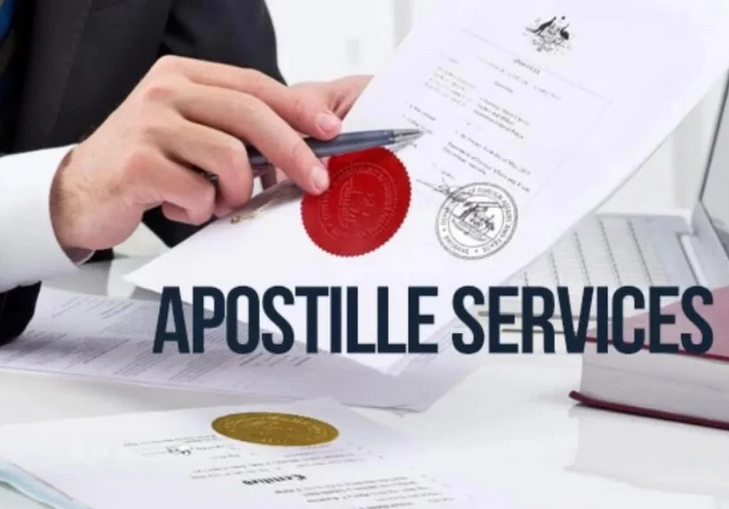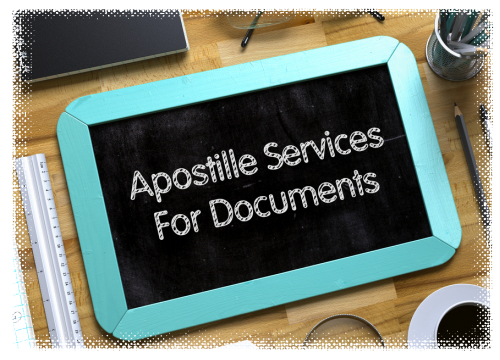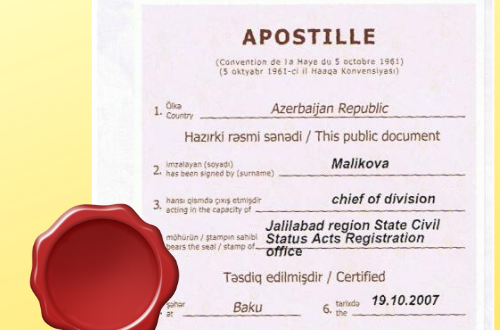Exploring the Factors Behind the Necessary Need of Apostille Certification for Legal Documents
In the realm of lawful documentation, the required need of apostille accreditation has actually become an important element that dramatically impacts the legitimacy and acknowledgment of lawful papers on an international range. Recognizing the reasoning behind this requirement entails delving into the intricate web of legal complexities, historical precedents, and global contracts that underscore the importance of apostille accreditation in today's interconnected world. By discovering the underlying reasons behind this widespread requirement, a clearer photo emerges of why this relatively administrative process holds such enormous relevance for people, governments, and companies alike.
Historical Advancement of Apostille Accreditation
How did the concept of apostille certification evolve over time to end up being an essential part of global file validation? The demand for a streamlined method of validating papers for usage throughout boundaries became noticeable as international profession and travel raised.
At first taken on by a couple of European countries, the Apostille Convention slowly obtained worldwide acceptance because of its performance and performance in validating the authenticity of main documents. For many years, the convention's reach expanded as more nations signed up with, identifying the apostille as an universally approved kind of record authentication. Today, apostille qualification has become a basic requirement for validating legal documents in worldwide transactions, guaranteeing smooth communication and lawful process in between countries.
Simplifying International Paper Legalization
The streamlining of worldwide file legalization procedures has considerably boosted efficiency in cross-border transactions. Streamlining the procedure of legalizing documents for worldwide use has ended up being crucial in facilitating swift and smooth deals in between nations. Among the key systems that have actually contributed to this simplification is the fostering of the Apostille Convention, which gives a standardized approach for confirming the authenticity of files throughout participating countries.
By adhering to the Apostille demands, countries concur to acknowledge each other's public papers as valid without the demand for additional legalization. This removes the frequently cumbersome and extensive procedure of numerous authentications by different authorities, conserving time and resources for businesses and people taken part in international tasks.

Making Certain Record Credibility and Legitimacy
To guarantee the credibility and validity of lawful files in international purchases, strict confirmation procedures are necessary - Houston Apostille. Lawful documents play a crucial duty in cross-border negotiations, and guaranteeing their authenticity is vital to support the integrity of such purchases. By needing apostille certification for legal documents, authorities intend to verify the origin of records and verify the trademarks of individuals included. This process aids avoid fraud, misstatement, and other negligences that might endanger international contracts or lawful proceedings.
In addition, verifying the authenticity of legal records with apostille qualification improves trust fund and confidence among celebrations involving in global deals. Eventually, by upholding rigorous verification standards, apostille certification contributes go to this site to an extra secure and transparent worldwide legal framework.

Promoting Cross-Border Legal Acknowledgment
In the world of international purchases, the apostille qualification not only makes certain the credibility and validity of lawful papers yet also plays an essential role in facilitating cross-border lawful recognition (Houston Apostille). When lawful papers bear an apostille certificate, they are conveniently accepted by international authorities without the requirement for more verification. This streamlined procedure speeds up the acknowledgment of records in various countries, advertising performance and reducing administrative difficulties in legal matters that go beyond national limits
Promoting cross-border lawful recognition via apostille qualification fosters trust fund and self-confidence in the authenticity of documents traded between countries. This acknowledgment is especially vital in circumstances such as global organization deals, fostering processes, or lawful process including celebrations from various territories. By sticking to the criteria set forth by the Apostille Convention, countries accept recognize the apostille seals fastened to papers from other participant countries, therefore dig this streamlining the process of lawful acknowledgment across borders. Inevitably, the apostille certification acts as an essential tool in promoting seamless global legal participation and making certain the smooth operation of cross-border transactions.
Conformity With International Treaty Requirements
Compliance with worldwide treaty requirements is crucial for ensuring the consistent application of lawful policies throughout taking part countries. The Apostille Convention, established in 1961, outlines the needs for the approval of public files among participant countries. By adhering to the requirements established forth in this treaty, countries dedicate to acknowledging the credibility of each other's authorities files without the demand for further verification - Houston Apostille. This common approval streamlines the process of cross-border paper recognition, promoting performance and minimizing governmental obstacles.
The Apostille certification, as mandated by the treaty, offers as a guarantee of credibility for documents such as birth certifications, marriage licenses, court judgments, and notarized actions. This standard technique assists avoid fraud and ensures that legal documents originating from one member nation are easily approved in an additional. By conforming with global treaty criteria, nations demonstrate their commitment to promoting the principles of openness, count on, and collaboration in legal issues on a global scale.
Conclusion

In the world of lawful paperwork, the compulsory need of apostille qualification has ended up being an essential aspect that substantially affects the credibility and recognition of legal documents on a global scale. Today, apostille accreditation has come to be a common need for confirming legal papers in global deals, ensuring smooth communication and lawful procedures between nations.
In addition, verifying the credibility of legal papers via apostille qualification improves count on and confidence amongst events involving in global purchases.In the world of international transactions, the apostille qualification not only makes certain the credibility and legitimacy of lawful papers however also plays a crucial duty in promoting cross-border lawful recognition. By adhering to the requirements established forth by the Apostille Convention, countries agree to honor the apostille seals attached to records from other member nations, thus streamlining the procedure of legal acknowledgment throughout borders.